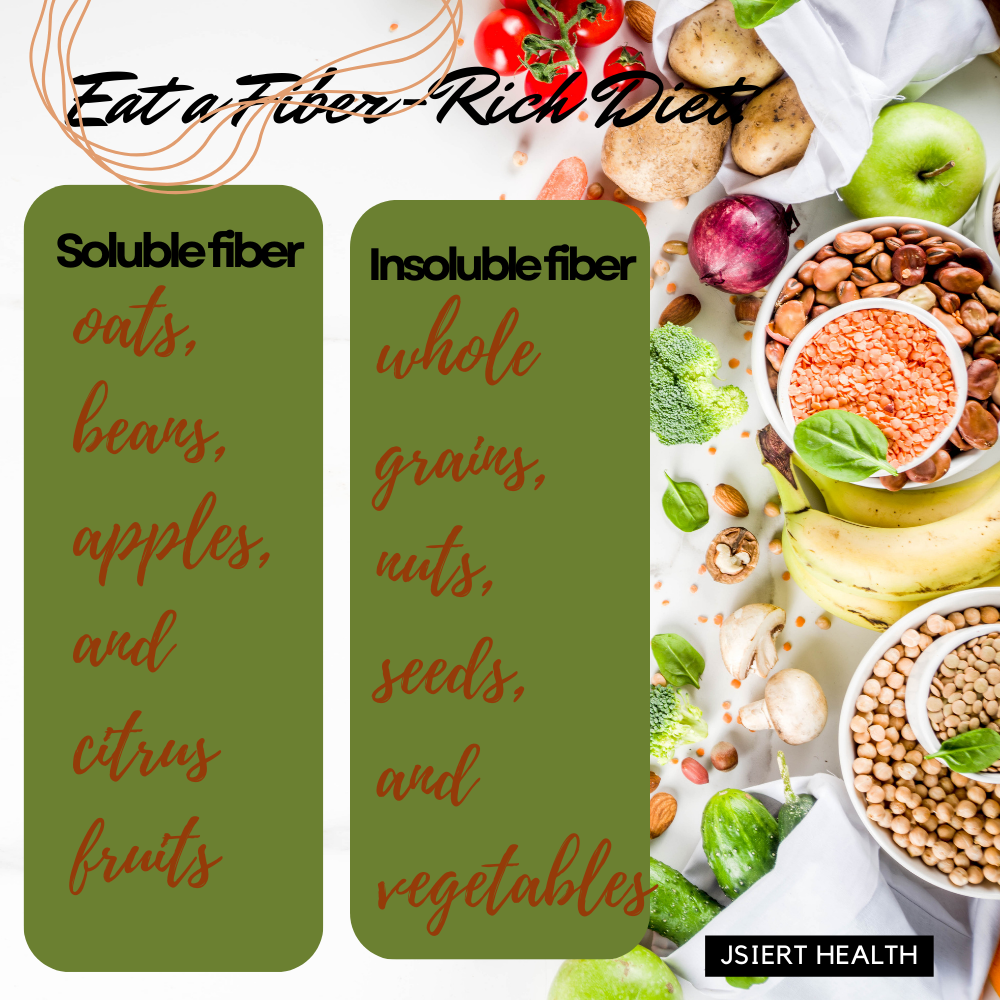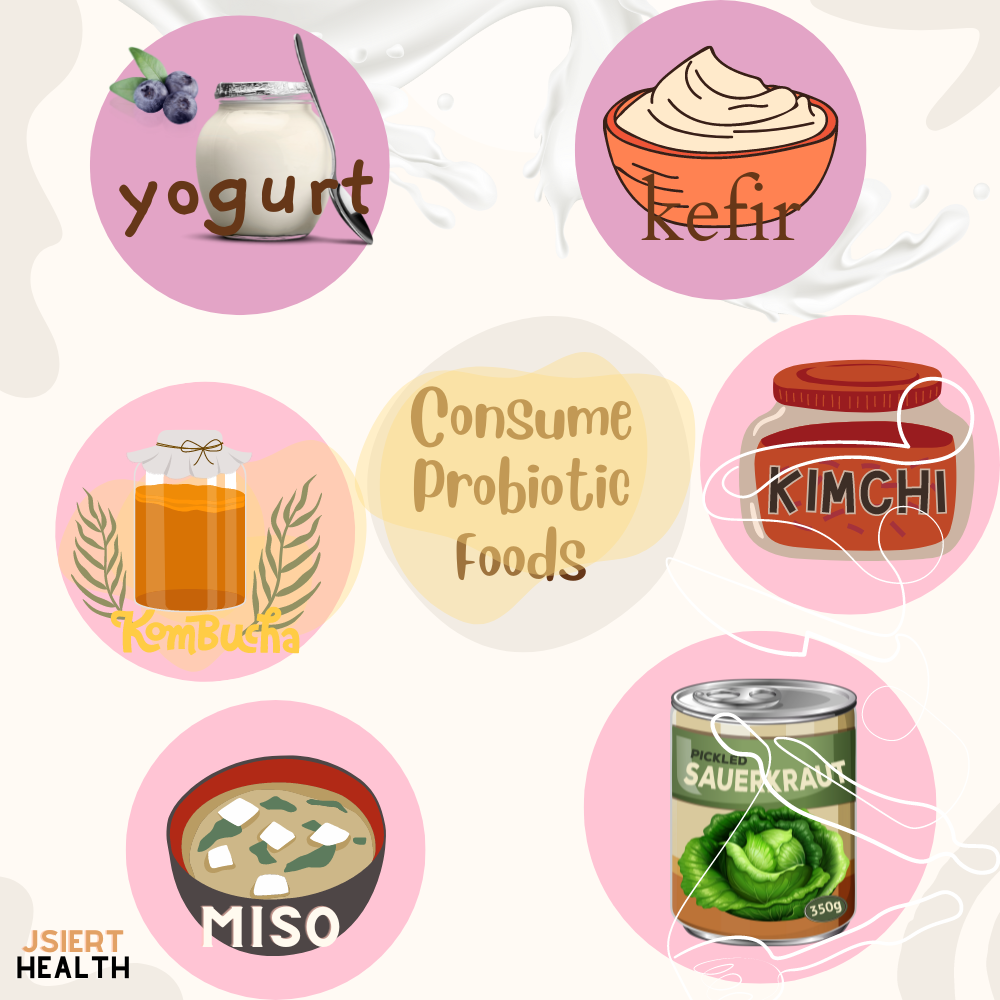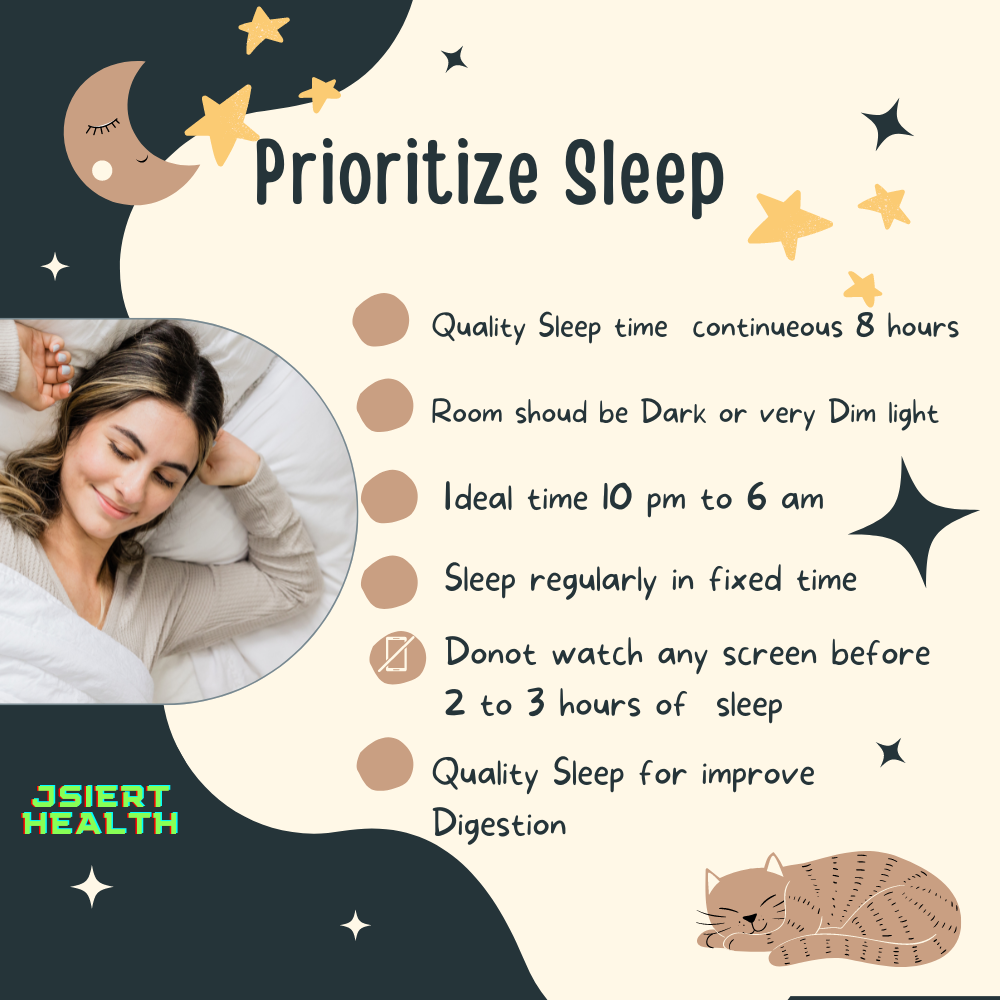Unlocking Gut Health: 10 Expert Tips to Improve Digestion Naturally
Introduction:

Understanding the Importance of Gut Health: The digestive system is a complex network of organs responsible for breaking down food, absorbing nutrients, and eliminating waste. It plays a crucial role in overall health and well-being. Gut health refers to the balance of microorganisms, the integrity of the gut lining, and the proper functioning of digestive processes. A healthy gut microbiome has been linked to better immune function, mental health, and disease prevention.
Digestive System Overview: The digestive system consists of the mouth, esophagus, stomach, small intestine, large intestine, liver, gallbladder, and pancreas. Each organ has a specific function in the digestion and absorption of nutrients. Digestive enzymes and beneficial bacteria aid in the breakdown of food and the maintenance of gut health.
Common Digestive Issues: Digestive disorders such as irritable bowel syndrome (IBS), acid reflux, constipation, and diarrhea are prevalent worldwide. Factors such as poor diet, stress, lack of exercise, and medication can contribute to digestive problems. Symptoms may include bloating, gas, abdominal pain, indigestion, and irregular bowel movements.
The Role of Diet and Lifestyle in Gut Health: Dietary choices directly impact gut health by influencing the composition of the gut microbiota and the function of the digestive system. Lifestyle factors such as stress management, adequate sleep, regular exercise, and hydration also play significant roles in maintaining gut health. Adopting a holistic approach to wellness can help improve digestion naturally and support overall well-being.
- Eat a Fiber-Rich Diet:

Explanation of Dietary Fiber: Dietary fiber refers to the indigestible portion of plant foods that passes through the digestive tract relatively intact. There are two main types of dietary fiber: soluble fiber, which dissolves in water, and insoluble fiber, which does not dissolve.
Types of Dietary Fiber: Soluble fiber forms a gel-like substance in the gut, which can help slow digestion and regulate blood sugar levels. Good sources include oats, beans, apples, and citrus fruits. Insoluble fiber adds bulk to the stool and promotes regular bowel movements. Foods high in insoluble fiber include whole grains, nuts, seeds, and vegetables.
Benefits of Fiber for Digestion: Fiber promotes digestive health by preventing constipation, supporting regular bowel movements, and feeding beneficial gut bacteria. It can also help lower cholesterol levels, control blood sugar, and aid in weight management.
Foods Rich in Fiber: Aim to include a variety of fiber-rich foods in your diet, such as fruits, vegetables, whole grains, legumes, nuts, and seeds. Examples include berries, broccoli, quinoa, lentils, chia seeds, and almonds.
Recommended Daily Intake of Fiber: The recommended daily intake of fiber varies depending on age, sex, and other factors. Adults should aim for 25-30 grams of fiber per day, but most people fall short of this goal.
Tips for Increasing Fiber Intake: Gradually increase fiber intake to avoid digestive discomfort. Include fiber-rich foods at every meal and snack. Choose whole, minimally processed foods over refined options. Stay hydrated to support the movement of fiber through the digestive tract.
- Stay Hydrated:

The Importance of Water for Digestion: Water plays a crucial role in digestion by helping dissolve and transport nutrients, lubricating the digestive tract, and facilitating waste elimination. Dehydration can lead to constipation, bloating, and impaired digestion.
Effects of Dehydration on Digestion: When the body is dehydrated, it may absorb more water from the colon, resulting in harder stools and difficulty passing waste. Insufficient hydration can also slow down the transit time of food through the digestive system, leading to sluggish digestion.
Recommended Daily Water Intake: The amount of water needed varies depending on factors such as age, weight, climate, and activity level. As a general guideline, aim to drink at least 8 glasses (64 ounces) of water per day, but individual needs may vary.
Tips for Staying Hydrated Throughout the Day: Carry a reusable water bottle with you and sip on water regularly. Drink water before, during, and after meals to aid digestion. Incorporate hydrating foods such as fruits and vegetables into your diet. Limit intake of dehydrating beverages such as caffeine and alcohol.
- Consume Probiotic Foods:

Explanation of Probiotics: Probiotics are live microorganisms that provide health benefits when consumed in adequate amounts. They are often referred to as “good” or “friendly” bacteria and can help maintain a balanced gut microbiome.
Benefits of Probiotics for Gut Health: Probiotics support digestion by promoting the growth of beneficial bacteria, inhibiting the growth of harmful bacteria, and enhancing immune function. They may also help reduce symptoms of digestive disorders such as IBS, diarrhea, and inflammatory bowel disease.
Probiotic-Rich Foods: Fermented foods are excellent sources of probiotics and include yogurt, kefir, kimchi, sauerkraut, miso, tempeh, and kombucha. These foods undergo fermentation, a process in which beneficial bacteria break down sugars and produce lactic acid or alcohol.
Incorporating Probiotic Foods Into the Diet: Include probiotic-rich foods in your meals and snacks on a regular basis to support gut health. Choose varieties of yogurt and other fermented foods that contain live and active cultures. Experiment with different flavors and recipes to find enjoyable ways to incorporate probiotics into your diet.
Supplements vs. Natural Sources of Probiotics: While probiotic supplements can be beneficial, it’s best to obtain probiotics from natural food sources whenever possible. Foods rich in probiotics also provide other essential nutrients and fiber that contribute to overall health. Consult with a healthcare professional before starting probiotic supplements, especially if you have underlying health conditions or are taking medication.
- Limit Processed Foods:

Definition of Processed Foods: Processed foods are products that have been altered from their natural state through methods such as cooking, freezing, canning, or packaging. They often contain added sugars, unhealthy fats, preservatives, and artificial additives.
Negative Effects of Processed Foods on Gut Health: Processed foods tend to be low in fiber and essential nutrients while high in calories, sugar, and unhealthy fats. Regular consumption of processed foods has been linked to obesity, heart disease, diabetes, and digestive disorders.
Examples of Processed Foods to Avoid: Sugary snacks and desserts Processed meats (sausages, bacon, deli meats) Fast food Packaged snacks (chips, cookies, crackers) Sugar-sweetened beverages (soda, sports drinks, energy drinks)
Tips for Reducing Processed Food Intake: Read food labels carefully and choose minimally processed options with simple ingredients. Cook meals at home using fresh, whole ingredients whenever possible. Limit your intake of convenience foods and opt for homemade alternatives. Swap out processed snacks for healthier options such as fresh fruit, nuts, or homemade trail mix.
- Manage Stress:

The Gut-Brain Connection: The gut and brain are interconnected through the gut-brain axis, a bidirectional communication system that involves the nervous system, hormones, and immune function. Stress can disrupt this communication network and influence gut health and digestion.
Effects of Stress on Digestion: Stress triggers the release of cortisol and other stress hormones, which can affect digestive processes such as gastric acid secretion, gut motility, and intestinal permeability. Chronic stress has been linked to an increased risk of digestive disorders such as irritable bowel syndrome (IBS), inflammatory bowel disease (IBD), and gastroesophageal reflux disease (GERD). Stress can also exacerbate symptoms of existing digestive conditions and contribute to digestive discomfort, bloating, and abdominal pain.
Stress Management Techniques: Practice relaxation techniques such as deep breathing exercises, progressive muscle relaxation, meditation, or yoga to reduce stress levels. Engage in regular physical activity, which can help lower stress hormones and promote relaxation. Prioritize self-care activities such as spending time outdoors, pursuing hobbies, or connecting with loved ones. Set boundaries and learn to say no to commitments that cause unnecessary stress. Seek support from a therapist or counselor if stress becomes overwhelming or difficult to manage.
Incorporating Relaxation Practices Into Daily Life: Schedule regular breaks throughout the day to rest and recharge. Create a calming bedtime routine to promote restful sleep and reduce nighttime stress. Practice mindfulness techniques such as mindful eating, mindful walking, or body scans to stay present and grounded. Find activities that bring you joy and relaxation, whether it’s reading, listening to music, or spending time in nature.
Experiment with different stress management strategies to discover what works best for you and make them a part of your daily routine.
- Practice Mindful Eating:

Explanation of Mindful Eating: Mindful eating involves paying attention to the sensory experience of eating and being fully present in the moment. It encourages awareness of hunger and fullness cues, as well as the taste, texture, and aroma of food. Mindful eating can help promote healthier eating habits, prevent overeating, and enhance digestion.
Benefits of Mindful Eating for Digestion: Mindful eating encourages slower, more intentional eating, which allows for better digestion and nutrient absorption. It helps prevent digestive discomfort by reducing the likelihood of overeating or consuming food too quickly. Mindful eating promotes a positive relationship with food and fosters greater appreciation for nourishing meals.
Mindful Eating Techniques: Eat slowly and chew your food thoroughly to aid digestion and prevent digestive issues such as bloating or indigestion. Pause between bites to check in with your hunger and fullness signals. Savor the flavors, textures, and aromas of your food, and pay attention to how it makes you feel. Avoid distractions such as screens or multitasking while eating to fully experience the pleasure of eating. Practice gratitude for the nourishment your food provides and the effort that went into preparing it.
Tips for Incorporating Mindful Eating Into Meals: Start with small changes, such as taking a few deep breaths before eating or setting aside dedicated meal times without distractions. Focus on one meal or snack each day where you practice mindful eating. Experiment with different mindfulness exercises, such as a gratitude practice or a sensory awareness exercise, to deepen your connection to your food. Be patient with yourself and remember that mindful eating is a skill that takes practice and self-compassion.
- Get Regular Exercise:

The Impact of Exercise on Digestion: Regular physical activity has been shown to promote healthy digestion by stimulating the muscles of the digestive tract, improving gut motility, and reducing constipation.
Walking is one of the best exercise for activating Lymphatic system. They boost Immunity and cellular metabolism.
Exercise can also help regulate appetite, control weight, and reduce stress, all of which contribute to better digestive health.
Benefits of Regular Physical Activity for Gut Health: Exercise increases blood flow to the digestive organs, which can enhance nutrient absorption and waste elimination. It stimulates the release of endorphins, neurotransmitters that promote feelings of well-being and reduce stress, which can positively impact digestion. Regular exercise supports a healthy metabolism and may reduce the risk of obesity-related digestive disorders such as GERD and fatty liver disease.
Types of Exercise That Support Digestion: Aim for a combination of cardiovascular exercise, strength training, and flexibility exercises to support overall health and digestion. Cardiovascular activities such as walking, jogging, cycling, or swimming can help increase heart rate and improve circulation. Strength training exercises such as weightlifting or bodyweight exercises help build muscle mass and support metabolic function. Flexibility exercises such as yoga or Pilates improve mobility and flexibility, which can aid digestion by reducing tension in the body.
Tips for Establishing a Consistent Exercise Routine: Choose activities that you enjoy and are sustainable in the long term to stay motivated and engaged. Start slowly and gradually increase the intensity and duration of your workouts to avoid injury or burnout. Incorporate physical activity into your daily routine by scheduling regular exercise sessions and finding opportunities to move throughout the day. Mix up your workouts to keep things interesting and prevent boredom, and listen to your body’s cues to avoid overexertion. Make exercise a priority by treating it as non-negotiable self-care and recognizing the positive impact it has on your overall health and well-being.
- Prioritize Sleep:

The Importance of Sleep for Digestion: Quality sleep is essential for digestive health as it allows the body to repair and regenerate tissues, balance hormones, and support immune function. During sleep, the body undergoes essential processes such as waste removal, cellular repair, and hormone regulation that are critical for optimal digestion. Poor sleep quality or insufficient sleep can disrupt these processes and contribute to digestive issues such as indigestion, bloating, and altered gut microbiota.
Effects of Sleep Deprivation on Gut Health: Sleep deprivation has been linked to changes in gut microbiota composition, increased inflammation, and alterations in appetite-regulating hormones, all of which can negatively impact digestion.
Studies have shown that individuals who consistently experience poor sleep are at a higher risk of developing gastrointestinal disorders such as GERD, IBS, and inflammatory bowel disease. Lack of sleep can also affect food choices and eating patterns, leading to cravings for high-calorie, sugary foods that can disrupt gut health and contribute to weight gain.
Recommended Hours of Sleep per Night: The recommended amount of sleep varies depending on age, with adults generally needing 7-9 hours of sleep per night for optimal health and well-being. However, individual sleep needs can vary based on factors such as genetics, lifestyle, and overall health status. It’s essential to prioritize quality sleep and establish a consistent sleep schedule to support digestion and overall health.
Tips for Improving Sleep Quality: Create a relaxing bedtime routine to signal to your body that it’s time to wind down, such as taking a warm bath, reading a book, or practicing relaxation techniques. Establish a consistent sleep schedule by going to bed and waking up at the same time each day, even on weekends. Create a sleep-friendly environment by keeping your bedroom dark, quiet, and cool, and investing in a comfortable mattress and pillows. Limit exposure to screens (phones, tablets, computers) before bedtime, as blue light can disrupt the production of melatonin, a hormone that regulates sleep-wake cycles. Avoid caffeine, alcohol, and heavy meals close to bedtime, as they can interfere with sleep quality and digestion.
- Limit Alcohol and Caffeine:

Effects of Alcohol and Caffeine on Digestion: Alcohol and caffeine are both known to have effects on digestion, although they impact the digestive system in different ways. Alcohol can irritate the lining of the stomach and intestines, leading to inflammation, acid reflux, and digestive discomfort. Excessive alcohol consumption can also disrupt gut microbiota balance, impair nutrient absorption, and contribute to liver damage. Caffeine stimulates the central nervous system and can increase stomach acid production, which may exacerbate symptoms of acid reflux or GERD in some individuals. It can also act as a diuretic, leading to increased urine production and potentially dehydration if
consumed in large amounts.
Recommended Limits for Alcohol and Caffeine Consumption: Moderation is key when it comes to alcohol and caffeine consumption to support digestive health and overall well-being. For alcohol, it’s generally recommended to limit intake to moderate levels, which is defined as up to one drink per day for women and up to two drinks per day for men. A standard drink is equivalent to 12 ounces of beer, 5 ounces of wine, or 1.5 ounces of distilled spirits. For caffeine, most health organizations advise limiting intake to no more than 400 milligrams per day for most adults, which is roughly the amount found in four 8-ounce cups of brewed coffee. Individual tolerance to caffeine varies, so it’s essential to listen to your body and adjust your intake accordingly.
Healthier Alternatives to Alcohol and Caffeinated Beverages: Opt for non-alcoholic and caffeine-free alternatives to traditional alcoholic and caffeinated beverages.
Choose herbal teas, decaffeinated coffee, or caffeine-free sodas as alternatives to caffeinated beverages. Experiment with mocktail recipes using sparkling water, fruit juices, and herbs for a refreshing alcohol-free option. Explore alcohol-free beers and wines, which offer the taste and experience of traditional alcoholic beverages without the alcohol content. Stay hydrated with water or herbal teas throughout the day to support digestion and overall hydration levels.
- Seek Professional Guidance:

When to Consult a Healthcare Professional: If you’re experiencing persistent or severe digestive symptoms such as abdominal pain, bloating, diarrhea, or constipation, it’s essential to seek medical attention. Consult a healthcare professional if you have concerns about your digestive health, especially if symptoms interfere with your daily life or persist despite lifestyle changes. It’s essential to rule out underlying medical conditions and receive proper diagnosis and treatment for digestive disorders.
Types of Healthcare Professionals to Consider: Consider consulting with a registered dietitian or nutritionist specializing in digestive health to receive personalized dietary recommendations and guidance. A gastroenterologist is a medical doctor specializing in the diagnosis and treatment of digestive disorders and can perform diagnostic tests such as endoscopy, colonoscopy, and imaging studies.
Naturopathic doctors may offer a holistic approach to digestive health, incorporating dietary and lifestyle interventions, herbal remedies, and other natural therapies. Work with a healthcare team that listens to your concerns, respects your preferences, and collaborates with you to develop a comprehensive treatment plan tailored to your individual needs.
Diagnostic Tests for Assessing Gut Health: Diagnostic tests may be recommended to assess gut health and identify underlying digestive disorders. Common tests include stool analysis to evaluate gut microbiota composition, blood tests to assess nutrient status and inflammation markers, and imaging studies such as ultrasound or MRI to visualize the digestive organs. In some cases, specialized tests such as hydrogen breath tests, food sensitivity testing, or endoscopic procedures may be recommended based on symptoms and clinical findings.
Treatment Options for Digestive Issues: Treatment for digestive issues depends on the underlying cause and may include dietary and lifestyle modifications, medications, and other interventions. For example, dietary changes such as eliminating trigger foods, increasing fiber intake, or following a low FODMAP diet may be recommended for conditions like IBS. Medications such as proton pump inhibitors (PPIs) or antispasmodics may be prescribed to manage symptoms of acid reflux or IBS. In severe cases or when conservative measures fail, surgical intervention may be necessary to address underlying anatomical issues or complications.
Conclusion:
Summary of Key Points for Improving Gut Health Naturally: Maintain a balanced diet rich in fiber, probiotics, and whole, minimally processed foods to support digestive health. Stay hydrated, manage stress, prioritize sleep, and engage in regular exercise to promote overall well-being and digestion. Practice mindful eating and limit alcohol and caffeine consumption to support healthy digestion and prevent digestive discomfort. Seek professional guidance if you experience persistent or severe digestive symptoms, and work with a healthcare team to receive proper diagnosis and treatment.
Encouragement to Incorporate These Tips Into Daily Life for Long-Term Digestive Wellness: Improving gut health is a journey that requires commitment to healthy habits and lifestyle changes over time.
By incorporating these expert tips into your daily routine and listening to your body’s cues, you can support long-term digestive wellness and overall health. Remember that small changes can lead to significant improvements in digestion and quality of life, so be patient and persistent in your efforts.
Closing Thoughts on the Importance of Prioritizing Gut Health: Gut health is fundamental to overall health and well-being, impacting everything from digestion and nutrient absorption to immune function and mental health. By nurturing your gut with nourishing foods, lifestyle practices, and professional support when needed, you can unlock the key to vibrant health and vitality. Prioritize your gut health today to enjoy a lifetime of digestive wellness and vitality.
Some frequently asked questions (FAQs) about the GUT HEALTH along with their answers:
- What is gut health?
- Gut health refers to the balance and optimal functioning of the gastrointestinal tract, including the stomach, intestines, and the complex ecosystem of microorganisms (microbiota) that inhabit it. It plays a crucial role in digestion, nutrient absorption, immune function, and overall well-being.
- What factors influence gut health?
- Several factors can impact gut health, including diet, lifestyle, stress levels, medications, genetics, and environmental factors. Consuming a diverse range of fiber-rich foods, fermented foods, and probiotics while minimizing processed foods, sugar, and artificial additives can promote a healthy gut microbiota.
- How does gut health affect overall health?
- The gut microbiota interacts with various bodily systems, influencing metabolism, immune function, inflammation, mood regulation, and even brain health. Poor gut health has been linked to digestive disorders, autoimmune diseases, mental health issues, obesity, and chronic inflammation.
- What are probiotics and prebiotics, and how do they support gut health?
- Probiotics are beneficial live bacteria or yeasts that can promote a healthy balance of gut microbiota when consumed in adequate amounts. Prebiotics are types of dietary fiber that nourish the beneficial bacteria in the gut, helping them thrive. Consuming probiotic-rich foods like yogurt, kefir, sauerkraut, and kombucha, along with prebiotic-rich foods like garlic, onions, bananas, and whole grains, can support gut health.
- Can gut health affect mental health?
- Emerging research suggests a strong connection between gut health and mental health, often referred to as the gut-brain axis. The gut microbiota produces neurotransmitters, such as serotonin and dopamine, which play crucial roles in mood regulation. Imbalances in gut bacteria have been linked to conditions like depression, anxiety, and stress.
- How can I improve my gut health?
- To improve gut health, focus on consuming a balanced diet rich in fiber, fruits, vegetables, whole grains, lean proteins, and healthy fats. Incorporate fermented foods like yogurt, kimchi, miso, and tempeh into your diet for probiotics. Stay hydrated, manage stress levels, get regular exercise, avoid smoking and excessive alcohol consumption, and consider limiting the use of antibiotics when not medically necessary.
- Are there any signs of poor gut health to watch out for?
- Signs of poor gut health may include digestive issues like bloating, gas, diarrhea, or constipation, food intolerances, frequent infections, fatigue, mood swings, skin problems, and weight changes. However, it’s essential to consult a healthcare professional for a proper diagnosis and treatment plan if you experience persistent symptoms.
- Can gut health be improved through supplementation?
- While dietary supplements like probiotics and prebiotics can be beneficial for some individuals, they should not replace a healthy diet or lifestyle. It’s essential to choose high-quality supplements and consult with a healthcare provider before starting any new regimen, especially if you have underlying health conditions or are taking medications.